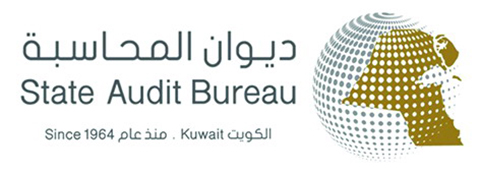 KUWAIT: The State Audit Bureau of Kuwait (SAB) marked yesterday its 54th anniversary of establishment as an entity in charge of monitoring public wealth. The SAB was founded on July 7, 1964 to be the chief audit authority to provide and propose solutions to dilemmas of financial nature for state and government bodies.
KUWAIT: The State Audit Bureau of Kuwait (SAB) marked yesterday its 54th anniversary of establishment as an entity in charge of monitoring public wealth. The SAB was founded on July 7, 1964 to be the chief audit authority to provide and propose solutions to dilemmas of financial nature for state and government bodies.
According to the SAB, Kuwait has established a number of institutions for the purpose of implementing a clear-cut methodology towards targeted development, operating within the domain of the State's economic and social policies. The former ruler of Kuwait, the late Sheikh Abdullah Al-Salem Al-Sabah had commanded the formation of the Supreme Executive Committee as a higher institution overseeing public departments.
The committee later issued a decree for the establishment of an audit bureau that monitors and manages public accounts. The decree was issued in the committee's fourth meeting which was held in July 22, 1954, and in its seventh meeting the committee issued another decree (7/15) delegating Ali Tawfiq Hajjaj, a technical expert in Accounting and Monetary Affairs, to utilize his expertise for the formation of the audit bureau and the regulation of the State's accounts.
At the dawn of independence, the Amiri decree no. 12 was issued on August 26, 1961 calling for the election of the Constitutional Council. Thereby, the first public elections took place in December 30, 1961 to form the council whose objectives were to establish the permanent constitution of the modern State of Kuwait, in addition to issuing laws and legislation and overseeing the performance of ministries.
In January 10, 1962, the Constitutional Council commenced its activity, where writing a permanent constitution along with an explanatory memorandum was on the top of its priorities. The constitution was later ratified on November 11, 1962. There is no doubt that the constitution of Kuwait was a crucial turning point in the establishment of the political and social existence of the State of Kuwait. It represents a big progressive leap in the history of Kuwait as its articles emphasize fundamental principles and trajectories towards national development, which have become the basis for the formation of policies in all public domains whether economic, social, political, or civil.
These assets have consequently factored in steering the efforts towards the establishment of Kuwait as a State of laws and institutions. One of the most momentous articles of the constitution is Article no.151, which states that a financial control bureau is to be established by a decree. The article also specifies that the bureau's independence must be legally warranted, and it should be appended to The National Assembly.
As for its purpose, the article mentions that the bureau is to assist the government and the National Assembly in monitoring the collection of the State's revenues and the settlement of its expenses within the specified budget. Also, the bureau is obligated to submit to both the government and the National Assembly an annual report enclosing its tasks and observations. Subsequently, Law no.30 for the year 1964 was accordingly issued declaring the establishment of the State Audit Bureau. - KUNA










